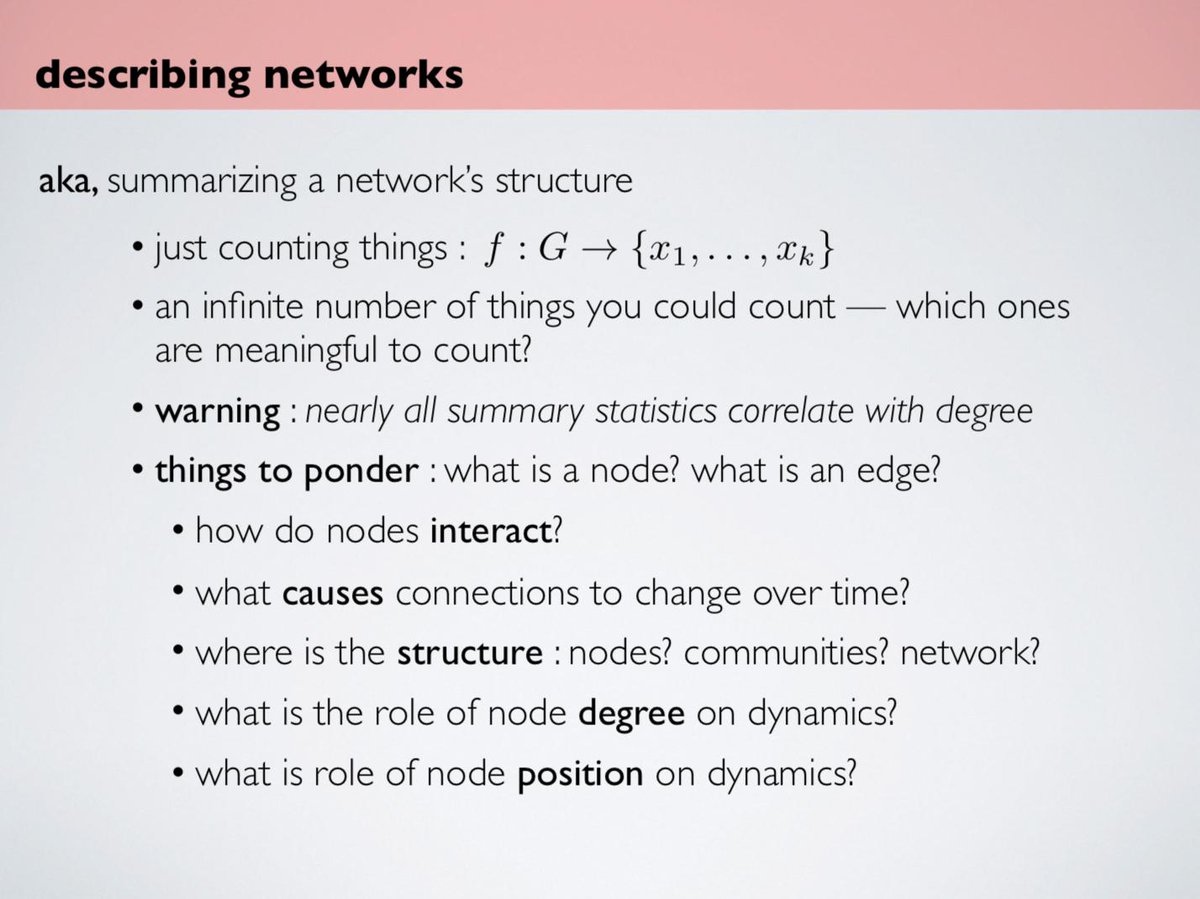
Associate Professor of Computer Science @ University of Colorado, Boulder and External Faculty @ Santa Fe Institute
How to get URL link on X (Twitter) App


 2/ First, we asked faculty about their parents' level of education when they were kids.
2/ First, we asked faculty about their parents' level of education when they were kids.


 Most networks are incomplete (for reasons). Link prediction algorithms can help fill in the gaps or say which network model fits better. Many link prediction methods exist! But most claim to work well... Is one method the best? How close to optimal predictors are they? 🤔 2/8
Most networks are incomplete (for reasons). Link prediction algorithms can help fill in the gaps or say which network model fits better. Many link prediction methods exist! But most claim to work well... Is one method the best? How close to optimal predictors are they? 🤔 2/8


 ICON was created rebelliously ✊, to (1) help researchers use a wider variety of empirical networks, (2) quantify the structural breadth of real-world networks, and (3) move us beyond toy models (and orthodoxy), toward a better understanding of network structure and evolution 2/5
ICON was created rebelliously ✊, to (1) help researchers use a wider variety of empirical networks, (2) quantify the structural breadth of real-world networks, and (3) move us beyond toy models (and orthodoxy), toward a better understanding of network structure and evolution 2/5

 Core idea: in sys bio data, networks tell us which values should (anti-)correlate, and pooling neighbor values can filter out independent noise. This is like image analysis, where networks are the system's "geometry," and community detection is analogous to image segmenting [2/4]
Core idea: in sys bio data, networks tell us which values should (anti-)correlate, and pooling neighbor values can filter out independent noise. This is like image analysis, where networks are the system's "geometry," and community detection is analogous to image segmenting [2/4] 

https://twitter.com/StephenKissler/status/12359439576343961611. Data on the two common human betacoronaviruses show evidence of seasonal forcing and some cross-immunity.


 Most networks are incomplete, for reasons, and link prediction can help fill in the gaps. Many such methods exist and most claim to work well. We wondered: Is there one method to rule them all? Are methods better on some domains than others? How close to optimality are they? 2/7
Most networks are incomplete, for reasons, and link prediction can help fill in the gaps. Many such methods exist and most claim to work well. We wondered: Is there one method to rule them all? Are methods better on some domains than others? How close to optimality are they? 2/7

 @CUBoulder Lecture 1: Fundamentals of Networks
@CUBoulder Lecture 1: Fundamentals of Networks





 Slides from my Network Science lectures @sfiscience Complex Systems Summer School, Part 2: degrees, positions, and communities (plus bonus material) tuvalu.santafe.edu/~aaronc/slides… #CSSS19 2/3
Slides from my Network Science lectures @sfiscience Complex Systems Summer School, Part 2: degrees, positions, and communities (plus bonus material) tuvalu.santafe.edu/~aaronc/slides… #CSSS19 2/3 




 Previously, we showed how faculty at higher prestige departments tend to be much more productive. But, since faculty in prestigious departments also tend to hire prestigious PhDs, it's unclear which of these—PhD or faculty prestige—drives this higher productivity 2/7
Previously, we showed how faculty at higher prestige departments tend to be much more productive. But, since faculty in prestigious departments also tend to hire prestigious PhDs, it's unclear which of these—PhD or faculty prestige—drives this higher productivity 2/7 



 Prestige predicts who hires whose graduates as faculty (advances.sciencemag.org/content/1/1/e1…), and they carry scientific ideas with them. Via simulation, we show that ideas born at elite universities can spread exponentially further than equally good ideas from less elite places 2/5
Prestige predicts who hires whose graduates as faculty (advances.sciencemag.org/content/1/1/e1…), and they carry scientific ideas with them. Via simulation, we show that ideas born at elite universities can spread exponentially further than equally good ideas from less elite places 2/5 



 But! The timings of state-level adoptions allow for statistical forecasts, with uncertainty, for the timing of a federal policy. We illustrate this for marriage equality and meth precursor laws, and then make real forecasts for recreational marijuana and stand-ur-ground laws 2/n
But! The timings of state-level adoptions allow for statistical forecasts, with uncertainty, for the timing of a federal policy. We illustrate this for marriage equality and meth precursor laws, and then make real forecasts for recreational marijuana and stand-ur-ground laws 2/n 

